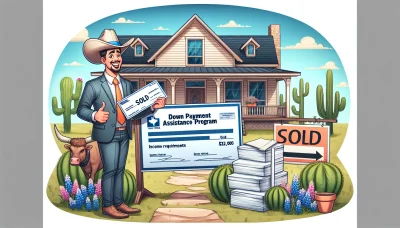Home buyer inspection Quiz
Test Your Knowledge
Question of
Understanding Home Buyer Inspections
Importance of Home Inspections
Imagine stepping into your new home and discovering it's a fortress of security and quality! That's the power of a professional home inspectionit's your shield, guarding against unforeseen expenses and hazards. A thorough inspection can reveal the true condition of a property, ensuring that your dream home doesn't turn into a costly nightmare.
Hidden issues in a house can be like invisible termites, slowly chipping away at your investment without you knowing. An expert inspector can unearth these silent deal-breakers, from electrical faults to structural weaknesses, giving you the full picture before you sign on the dotted line.
Knowledge is not just power; it's also a bargaining chip in real estate! Discovering defects during an inspection can arm you with valuable ammo to negotiate the price down or request repairs. Don't let hidden problems drain your wallet after purchaselet them be your leverage to secure a better deal!
Protecting Your Investment
Your home isn't just where your heart isit's likely one of the biggest investments you'll ever make. A comprehensive home inspection acts as a guardian of that investment. It ensures that you're not walking into a financial pitfall but instead stepping into a sound and secure asset.
An inspector's trained eye can save you from investing in a facade. They'll scrutinize every nook and cranny, from roof to foundation, to protect you from sinking money into a deceptively charming money pit. Think of them as your financial bodyguards against hidden repair costs!
Identifying Hidden Issues
The peace of an undisturbed night's sleep in your new home hinges on knowing there are no monsters lurking in the shadowsor in this case, hidden issues in the walls. Home inspections illuminate these dark corners, ensuring that any potential nightmares are caught before they become reality.
From the silent spread of mold to the quiet creep of water damage, hidden issues can cause significant harm if left unchecked. Inspections serve as an early warning system, alerting you to hazards before they escalate into full-blown disasters. It's like having a detective comb through every inch of the property for your safety and peace of mind.
Negotiating Leverage
An inspection report is more than just a list of problemsit's a toolkit for negotiation. With each issue detailed by an inspector, you gain more ground to stand on when discussing terms with sellers. Turn potential deal-breakers into powerful negotiating points and ensure that you're getting what you pay for.
Don't let sellers dictate terms without an inspection! Use it as evidence to lower the asking price or insist on repairs. Its like going into battle with intelligence on your sideyoure far more likely to come out victorious with favorable terms for your future home.
Types of Home Inspections
A general home inspection is akin to a comprehensive health check-up for your prospective home. It covers everything from structural integrity to HVAC systems, providing a broad overview of the propertys condition. This all-encompassing assessment is crucial for any savvy buyers decision-making process.
- General Home Inspection: The cornerstone of property assessments, evaluating major systems and structural elements.
- Specialized Inspections: Targeted examinations focusing on specific concerns such as radon levels, mold presence, or termite infestations.
- Pre-Listing Inspections: Conducted by sellers before listing their homes, aiming to uncover and address potential issues beforehand.
Beyond general inspections lie specialized assessmentslike X-rays zooming in on particular health concerns. These targeted examinations delve into areas such as radon exposure, mold growth, or termite infestation. They're indispensable for ensuring environmental safety and structural soundness where general inspections might not delve deep enough.
Sellers too can wield inspections as toolspre-listing inspections lay bare their homes' conditions before they hit the market. This preemptive strike allows sellers to address fixable flaws upfront, smoothing their path towards swift sales and satisfied buyers. Its about taking control of the narrative before it even begins!
Preparing for the Inspection Process
Choosing the Right Inspector
Embarking on the inspection journey begins with selecting an inspector who brings not only expertise but also trustworthiness to the table. It's crucial to verify that the inspector holds relevant qualifications and certifications, ensuring they're equipped with the latest industry knowledge to identify any potential issues with precision.
Diving into reviews and testimonials can offer invaluable insights into an inspector's performance from those who've walked this path before. Look for consistent patterns in feedback that highlight an inspector's strengths or reveal possible red flags. This step is paramount in making an informed choice.
When it comes to comparing costs and services, remember, cheapest isn't always best. Instead, focus on the value offered. A detailed breakdown of services provided against the fee charged can illuminate which inspectors stand out, offering thoroughness that justifies their price.
Qualifications and Certifications
A qualified inspector is a guardian against future headaches. They should be licensed professionals, often with backgrounds in engineering, architecture, or construction. Many regions require inspectors to pass rigorous exams and maintain continuing education credits these are signs of a dedicated professional staying at the forefront of their field.
Certifications like those from ASHI or InterNACHI indicate adherence to high industry standards. Inspectors with these certifications have proven they possess a deep understanding of building systems and components, which means they can spot trouble areas that others might miss.
Reading Reviews and Testimonials
Reviews and testimonials are windows into past customer experiences; they can shine a light on an inspectors meticulousness and ability to communicate findings effectively. Positive reviews often highlight professionalism, punctuality, and extensive knowledge key attributes for top-notch inspectors.
Negative feedback should not be dismissed lightly; it can expose recurring issues such as incomplete assessments or poor communication skills. Keep an eye out for how inspectors respond to criticism a professional and constructive response can be indicative of good customer service.
Comparing Costs and Services
An inspection is an investment in peace of mind, so when you're weighing costs against services, think about what's at stake. A more expensive inspector might provide comprehensive reports or use cutting-edge technology that could save you from costly repairs down the line.
Beware of hidden fees or services that seem too good to be true. Transparent pricing structures are a sign of a reputable inspector who respects their clients' right to make fully informed financial decisions.
What to Expect During an Inspection
Duration and Scheduling
The duration of an inspection varies depending on the property size and condition but typically ranges from two to four hours. Scheduling should be done at a time when both buyer and seller are available, ensuring complete transparency throughout the process.
Finding flexibility within your schedule is key as it allows for any unexpected delays or extended examination times needed for thorough inspections. An open time slot also reduces stress, providing ample opportunity for discussions post-inspection.
Areas and Systems Covered
- Structural Components: Inspectors scrutinize foundations, beams, columns, and framing to ensure stability.
- Exterior Evaluation: Walls, siding, windows, and doors are examined for defects that could lead to water infiltration or insulation issues.
- Roofing: Roof condition is assessed for longevity estimates; gutters are checked for proper drainage capabilities.
- HVAC Systems: Heating, ventilation, air conditioning units undergo tests for operational efficiency.
- Plumbing: Pipes are evaluated for leaks; water heaters are checked for safety compliance.
- Electrical Systems: Wiring safety checks are performed alongside functionality tests of outlets and fixtures.
- Interior Health: Assessors look at walls, floors, ceilings for signs of damage; radon testing may also be conducted indoors.
Tools and Techniques Used
Innovative tools like thermal imaging cameras can uncover hidden issues like poor insulation or electrical hotspots without invasive procedures. Moisture meters detect unseen water damage that could lead to mold growth critical in maintaining healthy indoor air quality.
Drones might soar above properties capturing detailed images of roofing conditions inaccessible during traditional inspections. These high-tech tools complement standard equipment like ladders and flashlights - all wielded by experienced hands trained to spot subtle signs of property concerns.
Key Areas of Focus in a Home Inspection
Structural Integrity
A home inspection is not complete without evaluating the structural integrity of the property. This crucial step ensures that the building stands on a firm foundation and can withstand environmental stresses. Inspectors look for signs of settlement, such as cracks in walls or uneven flooring, which could indicate deeper issues.
The foundation and basements are often tell-tale areas revealing the health of a structure. Inspectors scrutinize these areas for water damage, mold growth, and cracks in the foundation walls. A solid foundation means a secure home; any compromise here could spell significant trouble down the line.
Foundation and Basements
When diving into the depths of a home's foundation and basement, inspectors are on high alert for any red flags that could compromise stability. They examine for proper sealing against moisture and check if there's adequate drainage to prevent water pooling, which can erode foundations over time.
Walls and Ceilings
The state of walls and ceilings can reveal much about a home's condition. Inspectors search for uneven seams or bulges that may suggest structural shifting or water damage. They also keep an eye out for cosmetic cover-ups that might be hiding more serious issues underneath.
Roof and Attic Spaces
The roof is your first defense against the elements; thus, it's pivotal to ensure its integrity. Inspectors assess shingles, flashing, and gutters to confirm they're in good repair. In attic spaces, they look for proper insulation, ventilation, and any signs of leaks or water damage that could lead to costly repairs.
Systems and Components
A thorough home inspection must include all major systems and components to guarantee functionality and safety. Inspectors evaluate these systems with precision to ensure they meet current standards and operate correctly. Potential issues in these areas can not only be expensive to fix but also dangerous if left unchecked.
Electrical System
The electrical system is the nerve center of any home, powering appliances, lighting, and other crucial components. Inspectors check for up-to-date wiring, properly functioning circuit breakers, and safe outlets. Its essential to verify that the electrical system adheres to safety regulations to prevent hazards like fires.
Plumbing System
- Avoid outdated materials: Materials like lead pipes or polybutylene can be health hazards or prone to failure.
- Check for leaks: Persistent leaks can lead to mold growth and structural damage over time.
- Maintain water heaters: Inspectors should ensure water heaters are correctly installed and functioning efficiently.
- Test water pressure: High pressure can stress pipes while low pressure may indicate blockages or leaks.
- Inquire about history: Knowing the history of plumbing repairs can offer insights into potential future issues.
- Note sewer system state: Sewer lines should be free from obstructions or breaks to avoid costly repairs.
Heating, Ventilation, and Air Conditioning (HVAC)
HVAC systems require careful examination as they play a critical role in maintaining comfort within a home. The inspector will check if these systems operate efficiently and whether maintenance has been performed regularly. Poorly maintained HVAC systems can become financial burdens due to inefficiency or the need for premature replacement.
Understanding Inspection Reports
Interpreting Report Findings
Inspection reports can be daunting, but understanding them is crucial for any property transaction. They provide a snapshot of a property's condition at the time of inspection. It's essential to read through the entire document carefully, noting any areas flagged as concerns by the inspector.
Recognizing Major vs. Minor Issues : Not all findings in an inspection report are created equal. Major issues often involve structural problems, roof damage, or faulty electrical systems and can be costly to fix. Conversely, minor issues might include small cosmetic flaws or simple maintenance needs that are easy to address.
Decoding Technical Jargon : Inspection reports are filled with technical language that can be confusing. Terms like 'serviceable condition' or 'limited life expectancy' need clarification. Don't hesitate to ask your inspector for a layman's term explanation or further details on any terms you don't understand.
Assessing Safety Concerns : Safety issues should never be ignored. These include problems with wiring, gas leaks, or mold presence. Such issues require immediate attention and can significantly influence your decision-making process regarding the property.
Next Steps After Receiving the Report
The inspection report is a vital tool in the home buying process, guiding your next steps. Whether it's negotiating repairs or reconsidering your offer, it's important to consider the report's findings carefully before moving forward.
Discussing Results with Your Realtor : A good realtor will help you understand the implications of the inspection findings and advise on how to proceed. They can suggest whether to ask for repairs, request a price reduction, or if it's wise to walk away from a deal based on severe defects.
-
Planning Repairs or Renegotiations
: If you decide to go ahead with the purchase despite some issues, consider these tips:
- Prioritize safety-related and major structural repairs over cosmetic fixes.
- Negotiate with the seller who covers which repairs or adjust the sale price accordingly.
- Plan for potential additional costs that might arise during repair works.
- Making Informed Decisions : An inspection report empowers buyers to make informed decisions based on solid evidence of the property's condition. It helps in weighing the pros and cons of proceeding with a purchase and ensures that investments are made wisely.
Common Issues Uncovered During Inspections
Interior Problems
When it comes to the interior of a property, inspectors often find issues that can escape the untrained eye. Water damage and leaks are prevalent, sometimes hidden behind walls or under floors, leading to mold and structural damage. Its not just about stains or drips; the source needs urgent identification and repair.
Poor insulation and ventilation are like silent thieves in your home. They can hike up energy bills and create uncomfortable living conditions. An inspection might reveal inadequate attic insulation or improper bathroom venting, which are crucial for maintaining indoor air quality and temperature control.
Faulty wiring and electrical problems pose serious safety risks. Overloaded circuits, outdated panels, and improper grounding are common culprits that an inspector might flag. These issues demand immediate attention to prevent potential fires or electrocution hazards.
Exterior Challenges
The exterior of a home faces the brunt of environmental exposure, leading to several potential challenges. Landscaping and drainage issues may seem minor but can cause significant problems like foundation erosion or basement flooding if not addressed promptly.
Siding and window defects not only compromise a home's aesthetic but also its integrity. Cracks, rot, or improper sealing can allow moisture intrusion, pests, and drafts that could lead to more extensive damage over time. These defects need rectification to protect the home from further deterioration.
- Deck and Porch Safety Concerns: Inspectors often uncover compromised structures that could result in injury. Here are key points to watch out for:
- Railings should be secure and able to withstand pressure.
- Inspect for rotting wood or unstable support posts.
- Check for proper ledger board attachment to the main structure.
- Look for loose or missing fasteners and corroded hardware.
- Avoid overcrowding the deck with weight beyond its capacity.
Ensuring these outdoor structures are safe is paramount as they are frequently used for leisure activities. Regular maintenance checks can avert accidents before they happen, making these inspections non-negotiable.
Navigating Post-Inspection Negotiations
Addressing Major Repairs
When major repairs surface after a home inspection, it's crucial to act swiftly and strategically. Time is of the essence as you're often working within tight contract timelines. This stage is a pivotal point in the negotiation process, where understanding the severity and cost implications of repairs can significantly affect the final purchase terms.
Requesting repairs or a price reduction from the seller can be a delicate conversation. It's important to focus on non-cosmetic issues that impact the home's structural integrity or safety. Professional guidance from real estate experts and contractors is invaluable during this phase to ensure you're making informed decisions.
Requesting Seller Repairs or Credits
After identifying serious defects, buyers should consider requesting that the seller either address these issues before closing or provide credits towards the repair costs. It's essential to be clear and assertive about your expectations while remaining open to compromise. Remember that negotiations are a two-way street, and being too rigid can stall progress.
Estimating Repair Costs
Accurately estimating repair costs is fundamental before entering negotiations. Seek quotes from licensed professionals to understand the financial implications thoroughly. These estimates serve as a strong basis for your requests and show sellers that you've done your due diligence.
Considering As-Is Purchases
Purchasing a property 'as-is' might be tempting, especially if you're eyeing a competitive market or a particularly desirable property. However, it's vital to weigh the risks and future costs carefully. An 'as-is' sale doesn't mean you can't negotiate; use inspection findings to potentially lower the purchase price.
Handling Minor Repairs
Minor repairs may not seem critical initially, but they can add up in cost and effort over time. It's important not to overlook these smaller issues as they could lead to bigger problems down the line. Prioritizing which repairs to handle immediately and which can wait is key to managing your post-purchase workload and budget.
DIY Repair Considerations
Tackling minor repairs yourself can be a cost-effective solution if you have the skills. Before diving into DIY projects, assess whether you truly have the necessary expertise and time. Overestimating your abilities could result in further damage or additional expenses later on.
Prioritizing Repairs Post-Purchase
- Analyze Urgency: Distinguish between cosmetic flaws and those affecting functionality or safety.
- Consider Impact: Focus first on repairs that could worsen quickly or lead to other issues if left unaddressed.
- Evaluate Cost: Balance cost-effectiveness with urgency; sometimes minor upfront repairs can prevent expensive fixes later on.
- Plan Logistically: Schedule repairs in an order that makes sensedon't repaint walls if you'll need plumbing work that requires opening them up again soon.
- Maintain Records: Keep detailed records of all repairs for future reference, warranties, and potential resale value enhancement.
Using Warranties and Guarantees
In some cases, appliances or systems may still be under warranty at the time of purchase. It's wise to check existing warranties or guarantees that could cover imminent minor repairs. This approach can save money and provide peace of mind knowing that certain issues are professionally handled without additional out-of-pocket expenses.
Long-Term Maintenance After Purchase
Creating a Maintenance Schedule
Maintaining your purchase over the long haul is crucial for ensuring longevity and performance. Creating a comprehensive maintenance schedule is the first step towards responsible ownership. This schedule should outline regular check-ups, cleaning routines, and updates that need to be adhered to diligently.
By sticking to a well-crafted plan, you can avoid the pitfalls of neglect which often lead to costly repairs or replacements. Arrange your schedule by weekly, monthly, and annual tasks to make it manageable and effective.
Seasonal Maintenance Tips
As the seasons change, so do the maintenance needs of your belongings. Winter may call for safeguarding against freezing temperatures, while summer might focus on preventing overheating or moisture damage. Adjusting your maintenance actions seasonally ensures that your items are protected year-round.
Don't let the changing weather catch you off guard! Incorporate seasonal checks into your schedule to address issues like weatherproofing, temperature control, and humidity levels that could impact your possessions adversely if ignored.
Preventative Measures for Common Issues
Taking proactive steps can save you from headaches down the line. Identify common problems associated with your purchase and implement preventative measures early on. This foresight can reduce wear and tear, extending the life of your item significantly.
- Regularly clean filters and vents to prevent blockages.
- Lubricate moving parts to reduce friction and wear.
- Check for signs of rust or corrosion and treat immediately.
- Ensure software or firmware is always up-to-date.
- Inspect seals and gaskets regularly for potential leaks.
Keeping Records of Upkeep and Repairs
A detailed log of maintenance activities can be invaluable. Not only does it help in troubleshooting issues, but it also enhances the resale value of your item by proving consistent care. Keep all receipts, notes, and service records organized and accessible for future reference.
This documentation is not just a record; it's a roadmap for any future owner or service technician who may need insight into the item's history. Transparency with maintenance history can foster trust in any transaction or repair service involved with your purchase.
Hiring Professionals for Ongoing Maintenance
There are times when professional expertise is essential for maintaining complex purchases. Hiring seasoned professionals ensures that specialized tasks are performed correctly and safely. These experts can provide insights that go beyond regular upkeep, potentially saving you from significant damage or loss.
When to Call in Experts
Distinguishing between DIY maintenance tasks and those requiring expert attention is key. For complicated systems or high-stakes items, calling in a professional could mean the difference between a quick fix and a full-blown disaster. Pay attention to warning signs that suggest it's time to seek expert help.
Establishing Relationships with Trusted Service Providers
Finding reliable service providers before an emergency arises is a strategic move. Cultivating a relationship with trusted technicians ensures you have access to prompt, quality service when needed. Consistent engagement with these professionals often leads to better service terms and priority treatment.
Budgeting for Routine Maintenance
Budgeting for routine maintenance is as important as setting aside funds for initial purchase costs. Anticipate regular expenses such as part replacements, professional servicing fees, or subscription updates related to your item's upkeep. A dedicated maintenance fund can alleviate financial stress when unforeseen issues arise.
Legal and Financial Considerations of Home Inspections
When diving into the world of home inspections, it's vital to grasp the legal and financial stakes at play. A thorough home inspection can reveal critical information about a property's condition, influencing negotiations, sales outcomes, and long-term satisfaction. Let's explore the intricacies of disclosure laws, insurance implications, and warranty landscapes that could significantly impact both buyers and sellers in real estate transactions.
Understanding Disclosure Laws
The legal framework surrounding home inspections is anchored by disclosure laws that demand transparency from sellers. These laws are designed to protect buyers from unseen defects and vary widely across jurisdictions. Navigating these requirements is essential for all parties to ensure a fair and lawful transaction.
Seller's Obligation to Disclose Defects: Sellers must be upfront about known property issues, as failure to disclose can lead to legal repercussions post-sale. A detailed inspection report serves as a critical document, outlining potential problems that could affect a buyer's decision.
Legal Implications of Ignoring Inspection Results: Overlooking significant findings from a home inspection isn't just riskyit can be legally precarious. Buyers may have grounds for legal action if undisclosed defects surface after purchase, emphasizing the need for honesty and attention to detail throughout the sale process.
State-Specific Disclosure Requirements: Disclosure regulations can differ dramatically between states, making it imperative for sellers and buyers to familiarize themselves with local laws. Understanding these nuances helps in mitigating risks and ensuring compliance with regional real estate practices.
Impact on Home Insurance and Warranties
A comprehensive home inspection not only sheds light on a property's condition but also influences insurance policies and warranty agreements. It's crucial for homeowners to understand how inspection outcomes can sway insurance premiums and the extent of warranty protection available to them.
How Inspection Findings Affect Insurance Rates: Insurers often adjust rates based on the risk profile of a property. Discoveries such as outdated electrical systems or structural weaknesses can lead to higher premiums or even denial of coverage, underscoring the financial implications of an inspection report.
Warranty Coverage for New Homeowners: Warranties offer new homeowners peace of mind but come with their own set of conditions. An inspection can identify issues not covered by warranties, helping buyers plan for future expenses or negotiate terms prior to closing the deal.
- Avoid Presuming Coverage: Never assume all defects are covered by warranties; verify specific terms.
- Maintenance Matters: Regular maintenance is often required; neglecting this can void warranty claims.
- Detailed Documentation: Keep detailed records of all inspections and repairs; they're crucial for claims.
- Understand Time Limits: Be aware of deadlines; some issues must be reported within certain time frames.
- Prioritize Professional Repairs: DIY fixes may not be recognized; professional repairs are more credible for warranty purposes.
- Read Fine Print: Familiarize yourself with exclusions; some components might not be protected under warranty.
- Certified Inspectors Count: Use certified inspectors for initial assessments; their reports carry more weight with warranty providers.
Dealing with Pre-Existing Conditions: Addressing pre-existing conditions in homes is tricky business. Buyers should carefully assess whether existing homeowner warranties transfer upon sale or if separate coverage should be sought based on inspection findingsstrategic decisions that can significantly impact long-term costs.












